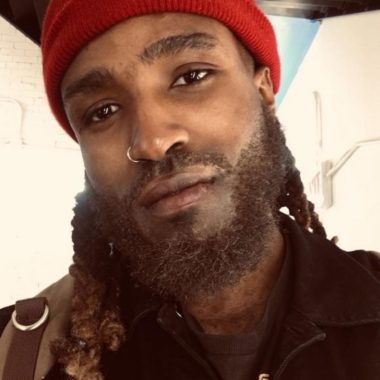Nestled within the walls of Arlene’s Grocery on the Lower East Side, a vibrant pulse of sound and grit of resilient artists who just want to play great music. This November, a celebration of this music and its artists has arrived: Bands do BK Presents: The Music Matters NYC, is a VHS compilation capturing the electric heartbeat of NYC’s indie scene. And It promises to remind us all of the raw tenacity that fuels this city, even in its darkest hours.
I had the pleasure of sitting down with Marc Seligman and Sam Sumpter, the visionary creators behind the project and discussed their process, and why it was important to capture these performances.
Roderick Thomas: “Music Matters” feels more like a fact than a statement, and it’s woven into the name of this project. What was your vision when curating this compilation?
Marc Seligman: I met Sam through my son’s band and quickly saw the incredible community she’s built. At a charity event last Thanksgiving, I witnessed a genuine connection between bands. It was more than music—it was a family. That inspired me to get this project rolling.
Roderick: So the community inspired you?
Marc: Yes, it’s authentic camaraderie. These bands support each other in ways I’ve never seen before. It’s deeper than the music.
Roderick: What made Arlene’s Grocery the perfect spot for filming?
Sam Sumpter: Arlene’s has history—bands like The Strokes started there. I’ve booked shows there for years, and the sound is unbeatable. Bringing Brooklyn bands back to the Lower East Side felt like a nod to old New York. It’s intimate, sweaty, and alive—exactly what live music should be.
What made the experience even more special was the layout of Arlene’s. The venue has multiple levels, an indoor lounge, and a back area where people gather. Marc fondly remembered seeing crowds hanging out late into the night, even on weekdays. That environment helped solidify the feeling that this wasn’t just a music event but a full-blown celebration of a community. Sam added that the venue’s unique setup allowed bands and fans to interact freely, creating an atmosphere of camaraderie that felt almost like a family reunion.
Roderick: With AI on the rise, do you think live shows will become more significant?
Sam: Definitely. After COVID, I craved in-person shows. AI can’t replicate the human energy and soul of live music. It’s raw, real, and irreplaceable.
Marc: Live music’s imperfections make it special. AI might be perfect, but real music has a soul. Those performances at Arlene’s were all about that authenticity.
The legacy of Arlene’s Grocery extends beyond being a historic venue. Since 1995, it has shaped the indie music scene, with countless artists cutting their teeth there. Filming in such a space was about paying homage to that history while capturing the vibrancy of today’s scene. It became a perfect backdrop for a project that connects the past and present.
Roderick: Why VHS?
Marc: We wanted something unique and timeless. VHS has a nostalgic pull, and suddenly it’s back in demand. It felt right for preserving these performances.
Nostalgia for the ’90s and early 2000s is everywhere these days. From fashion revivals with baggy jeans and crop tops to the resurgence of classic music styles, the influence of that era is undeniable. VHS tapes fit right into that wave. The grainy, analog look gives these performances a raw, authentic feel—almost like a time capsule of a moment that’s both current and timeless. It’s not just about aesthetics; it’s about tapping into a collective memory and making today’s music feel like a part of that legacy.
Roderick: How did you choose the bands?
Sam: It wasn’t easy. There’s so much talent here. We picked bands that capture the energy of the scene and are integral to this community. Availability played a role too.
Roderick: Any standout moments?
Marc: So many. A Very Special Episode started wild—pants off, crowd diving. Night Spins had a heartfelt goodbye kiss between bandmates. Little moments, like an audience member shaking a tambourine, really showed the sense of togetherness.
This project isn’t just about documenting music; it’s about immortalizing a community, one performance at a time. New York, it seems, isn’t dead—far from it. It’s alive, it’s vibrant, and it’s waiting for you to be a part of it.










